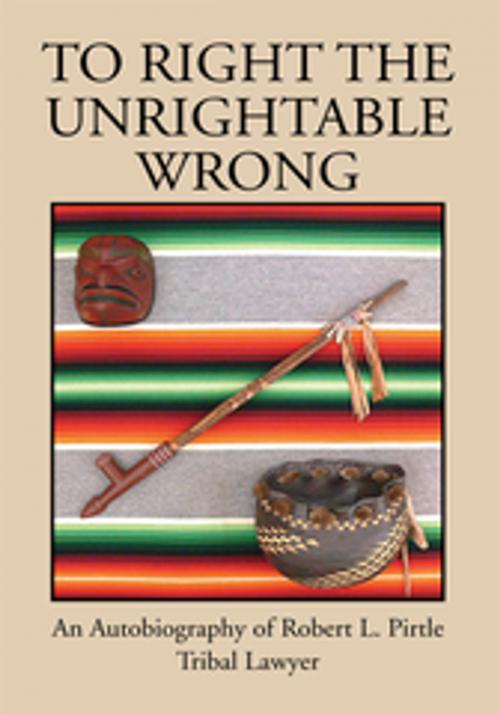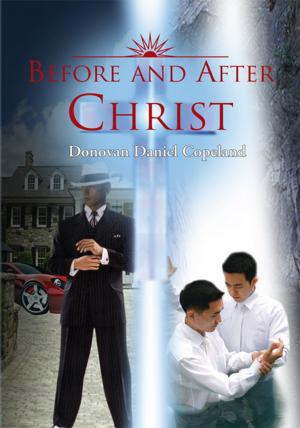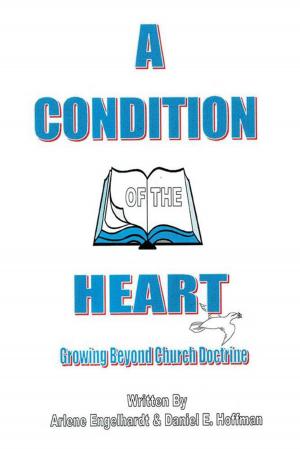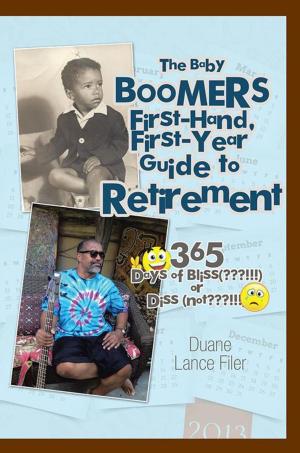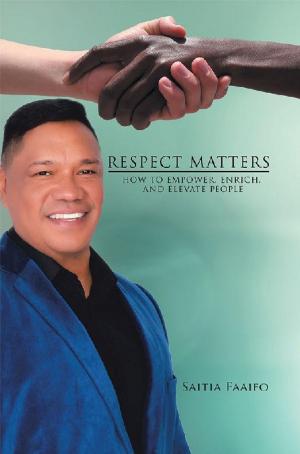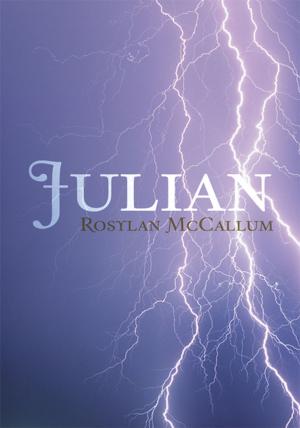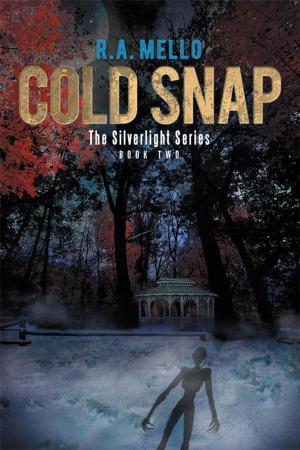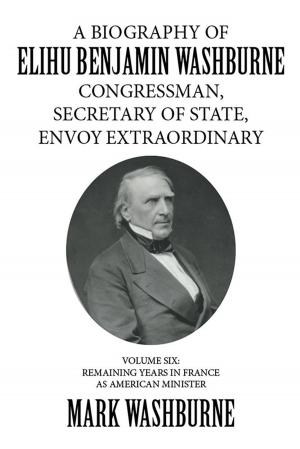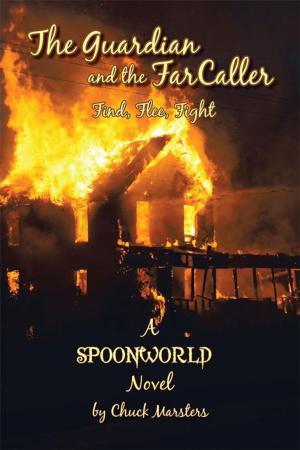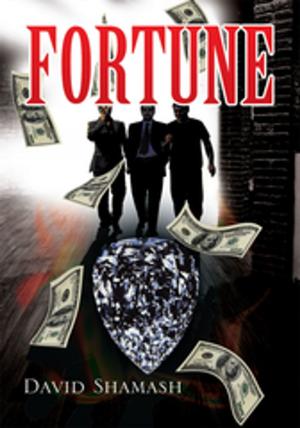| Author: | Robert L. Pirtle | ISBN: | 9781469100326 |
| Publisher: | Xlibris US | Publication: | November 16, 2007 |
| Imprint: | Xlibris US | Language: | English |
| Author: | Robert L. Pirtle |
| ISBN: | 9781469100326 |
| Publisher: | Xlibris US |
| Publication: | November 16, 2007 |
| Imprint: | Xlibris US |
| Language: | English |
A century ago Americans were still moving west, settling in new states, establishing themselves in new environments. That pattern was followed by the grandparents, then by the parents of Robert L. Pirtle, the author of this autobiography. The eventual home of the authors parents and his family was Roswell, New Mexico, a sleepy little town in southeastern New Mexico. To begin with, however, the book traces the authors lineage, even including fascinating familial connections to the compilation of the King James Version of the Bible, to the Cherokee Indian Tribe and to the Commander of the Alamo. Readers will certainly enjoy the picture the author draws of small town America in the 1930s and 1940s, of the vicissitudes of growing up, of junior and senior high school days and high jinks.
The author displayed an interest in fairness and justice from his earliest days; indeed he proposes that every child has an inherent instinct for justice. As the author moved through childhood and school years he encountered numerous incidents in which the concept of fairness played a decisive part. Though such incidents of childhood are of minimal significance, yet they play a part in shaping a childs character and perception of the world, and can lead to incidents of real significance in adulthood. The author describes incidents which did just that in his own life. In one instance the author shamefacedly admits being the cause of a hurtful injustice to others; yet that incident, too, played its part in his maturation. It is said, after all, that good judgment comes from experience and experience comes from bad judgment.
By the time the author graduated from high school his interest in science in mathematics rose to the forefront of his mind and he entered Purdue University with a four-year scholarship from the University. Before the year was out, however, he knew he did not want to pursue science as a career and he switched to the University of Arizona where he majored in mathematics, his easiest subject, while he sampled the liberal arts and pondered what his life work would be. He first considered entering the ministry and becoming a Methodist Preacher, but little by little he decided that he could prove of greater help to people and especially to the cause of justice as a lawyer.
Accordingly, his last year in the undergraduate program was his first year in the law school of the University of Arizona. After graduating he took his commission as a 2nd lieutenant in the United States Air Force, working as a mathematician at the Special Weapons Center of Kirtland Air Force Base in Albuquerque, New Mexico. The authors function was as target analyst, designing an atomic weapon delivery system for fighter aircraft. Fascinating is the authors description of his witnessing the explosion of an atomic bomb named Zucchini in Nevada in 1955.
The author entered the University of Colorado upon completing his Air Force term and was hired by the largest law firm in Seattle, Holman, Mickelwait, Marion, Black & Perkins, upon his graduation from law school. During his brief Air Force career, The author had studied Shakespeare at the University of New Mexico, later entered into negotiations with the popular TV show The $64,000 Question, and was being scheduled to appear on the show after his graduation from law school. But the TV show collapsed after Charlie Van Doren, son of the internationally known Shakespeare scholar, Mark Van Doren, lied to a grand jury in New York concerning whether he had been fed answers when he appeared on the show. And a year or so of performing legal work for corporate clients discouraged the author to the point that he left the Firm and hung out his shingle as a sole practitioner, but simultaneously entered the graduate school of philosophy of the University of Washington, contemplating becoming a philosophy professor.
In the end the author, d
A century ago Americans were still moving west, settling in new states, establishing themselves in new environments. That pattern was followed by the grandparents, then by the parents of Robert L. Pirtle, the author of this autobiography. The eventual home of the authors parents and his family was Roswell, New Mexico, a sleepy little town in southeastern New Mexico. To begin with, however, the book traces the authors lineage, even including fascinating familial connections to the compilation of the King James Version of the Bible, to the Cherokee Indian Tribe and to the Commander of the Alamo. Readers will certainly enjoy the picture the author draws of small town America in the 1930s and 1940s, of the vicissitudes of growing up, of junior and senior high school days and high jinks.
The author displayed an interest in fairness and justice from his earliest days; indeed he proposes that every child has an inherent instinct for justice. As the author moved through childhood and school years he encountered numerous incidents in which the concept of fairness played a decisive part. Though such incidents of childhood are of minimal significance, yet they play a part in shaping a childs character and perception of the world, and can lead to incidents of real significance in adulthood. The author describes incidents which did just that in his own life. In one instance the author shamefacedly admits being the cause of a hurtful injustice to others; yet that incident, too, played its part in his maturation. It is said, after all, that good judgment comes from experience and experience comes from bad judgment.
By the time the author graduated from high school his interest in science in mathematics rose to the forefront of his mind and he entered Purdue University with a four-year scholarship from the University. Before the year was out, however, he knew he did not want to pursue science as a career and he switched to the University of Arizona where he majored in mathematics, his easiest subject, while he sampled the liberal arts and pondered what his life work would be. He first considered entering the ministry and becoming a Methodist Preacher, but little by little he decided that he could prove of greater help to people and especially to the cause of justice as a lawyer.
Accordingly, his last year in the undergraduate program was his first year in the law school of the University of Arizona. After graduating he took his commission as a 2nd lieutenant in the United States Air Force, working as a mathematician at the Special Weapons Center of Kirtland Air Force Base in Albuquerque, New Mexico. The authors function was as target analyst, designing an atomic weapon delivery system for fighter aircraft. Fascinating is the authors description of his witnessing the explosion of an atomic bomb named Zucchini in Nevada in 1955.
The author entered the University of Colorado upon completing his Air Force term and was hired by the largest law firm in Seattle, Holman, Mickelwait, Marion, Black & Perkins, upon his graduation from law school. During his brief Air Force career, The author had studied Shakespeare at the University of New Mexico, later entered into negotiations with the popular TV show The $64,000 Question, and was being scheduled to appear on the show after his graduation from law school. But the TV show collapsed after Charlie Van Doren, son of the internationally known Shakespeare scholar, Mark Van Doren, lied to a grand jury in New York concerning whether he had been fed answers when he appeared on the show. And a year or so of performing legal work for corporate clients discouraged the author to the point that he left the Firm and hung out his shingle as a sole practitioner, but simultaneously entered the graduate school of philosophy of the University of Washington, contemplating becoming a philosophy professor.
In the end the author, d
